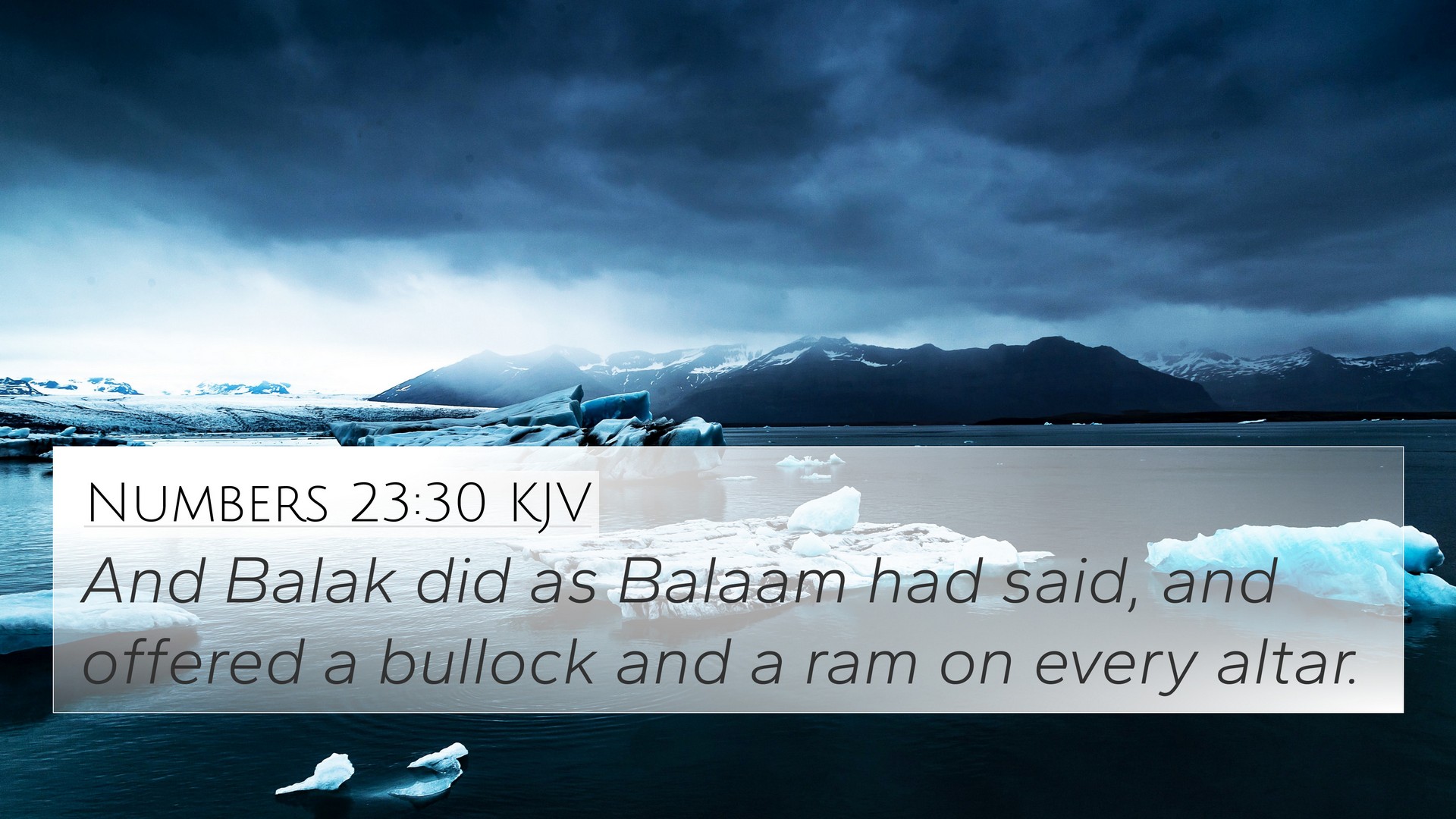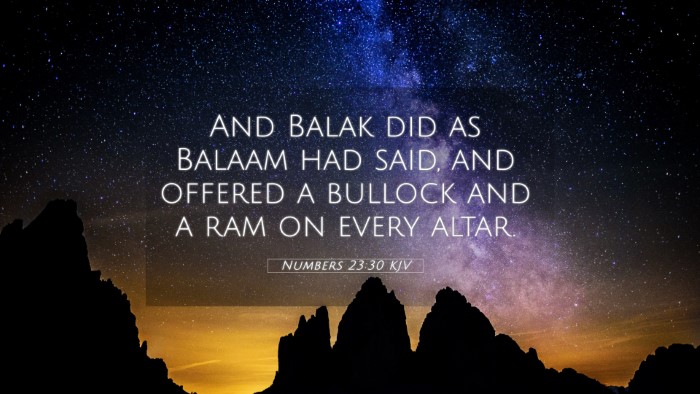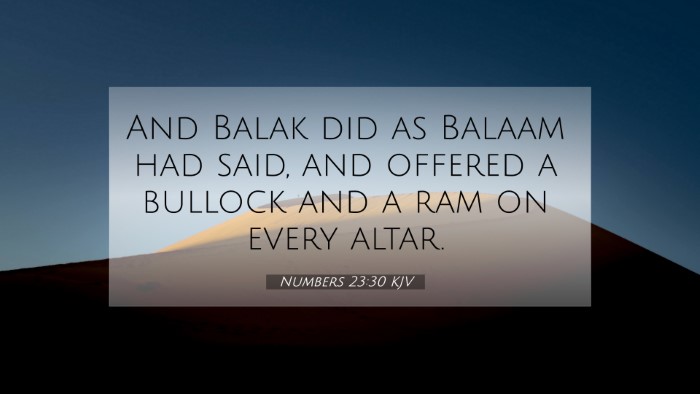Understanding Numbers 23:30
Numbers 23:30 states: "And Balak did as Balaam had said, and offered a bullock and a ram on every altar." This verse occurs in a narrative context where Balak, the king of Moab, follows the instructions given by Balaam, the prophet, to offer sacrifices in an attempt to invoke a blessing or curse upon Israel.
Summary of the Verse
This passage showcases the actions of Balak in obedience to Balaam’s recommendations. Each altar is filled with offerings, specifically a bullock and a ram, which indicate a deep commitment and seriousness in the ritualistic practices of the time. This moment serves both a literal and symbolic purpose in the unfolding events of Israel's encounters with surrounding nations.
Commentary Insights
Matthew Henry's Commentary
Matthew Henry notes the folly of Balak in seeking to use Balaam’s words to manipulate divine favor. Henry stresses that Balak is emphasizing his faith in the power of sacrifices, while Balaam's role points to the questionable ethics of those who capitalize on spiritual authority. The act of offering sacrifices here becomes a backdrop to the larger theme of God’s sovereignty, highlighting that divine intent cannot be manipulated by human actions.
Albert Barnes' Notes on the Bible
Albert Barnes describes the offerings made by Balak as a serious attempt to secure favor from God against Israel. He emphasizes that the choice of a bullock and a ram represents the popular sacrificial practices of the time. Moreover, Barnes elucidates that these actions underline the desperate measures that Balak was willing to take, which juxtaposes the ultimate futility of opposing God’s chosen people.
Adam Clarke's Commentary
Adam Clarke elaborates on the significance of Balak’s actions and the spiritual symbolism behind the offerings. Clarke highlights that the bullock and ram are symbolic of strength and purity. He indicates that this act of worship was rooted not just in ritual but in a deeper understanding that Balak sought divine insight regarding his present fears concerning Israel. This highlights the interconnectedness between faith practices and the struggle for power.
Thematic Connections
This verse is emblematic of the larger themes of divine sovereignty, human manipulation of spiritual tools, and the tension between nations as they interact with God's chosen people. It features prominently in discussions of how sacrifices functioned within ancient texts and rituals.
Bible Verse Cross-References
- Genesis 12:3 - God's promise of blessing on those who bless Abraham's descendants.
- Exodus 23:22 - God's willingness to be an enemy to those who oppose Israel.
- Deuteronomy 23:4-5 - It elaborates on the Moabites' opposition to Israel.
- Isaiah 14:24 - Speaks about the determined will of God against oppressors of Israel.
- Micah 6:5 - Reminds Israel of the sins of Balak and Balaam as a warning.
- James 1:17 - Highlights that every good and perfect gift comes from God, reflecting on the futility of Balak’s efforts.
- Romans 8:31 - If God is for us, who can be against us, resonating with the futility of Balak's sacrifices.
Applications and Reflections
The offering of sacrifices as depicted in Numbers 23:30 serves as a lesson on the nature of faith and divine intention. It teaches the believer that appeals to God cannot be manipulated through ritualistic practices without genuine reverence and faith. It encourages a heart posture focused on seeking God’s will rather than attempting to control Him through offerings.
Conclusion
Numbers 23:30 serves as an extraordinary reflection of the spiritual conflicts evident in the narratives of the Old Testament. Understanding this verse through cross-referencing and the insights from biblical commentaries allows for a fuller interpretation of the dynamics at play not only between nations but in the unfolding story of God’s redemptive plan through Israel.


